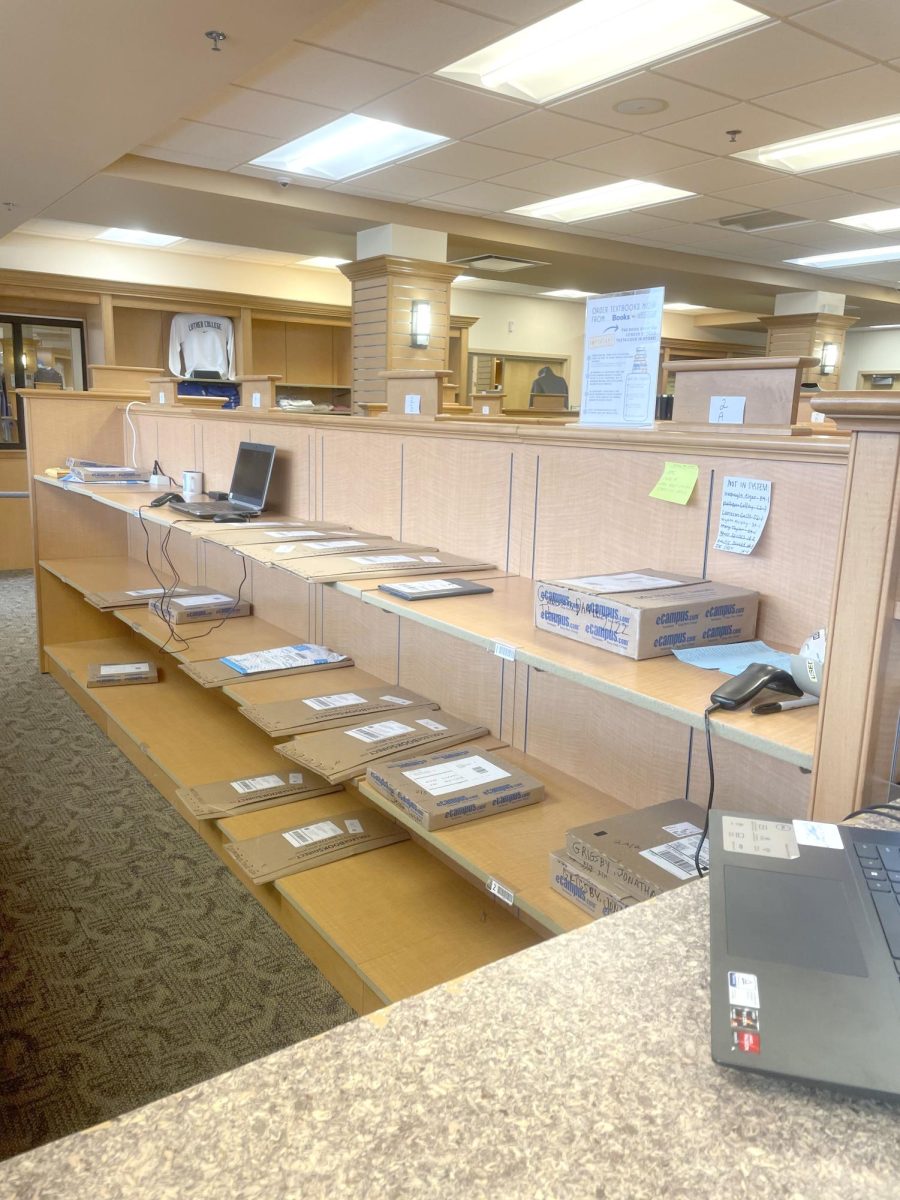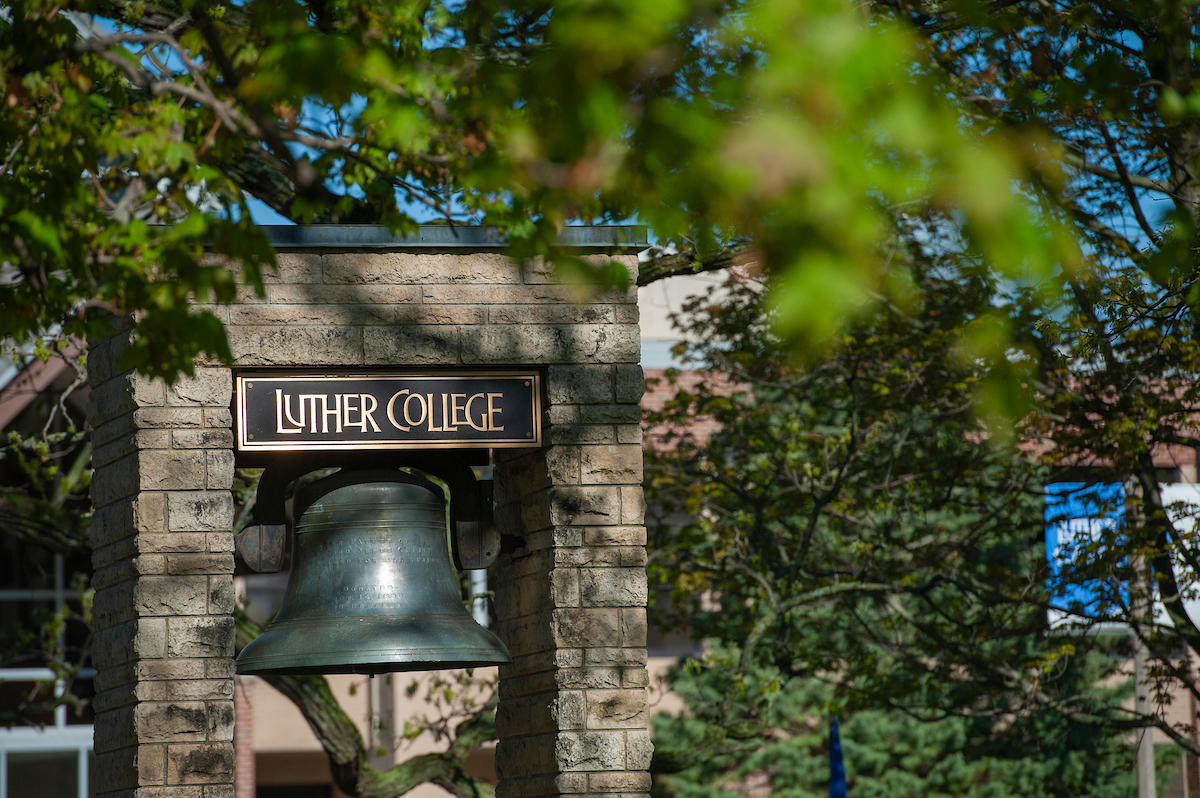The Luther Book Shop announced a new textbook partnership with eCampus at the end of the Fall 2023 semester. Since the partnership went into effect for the 2024 January term, students have expressed frustration with the eCampus platform.
eCampus is an online retailer of new, used and electronic textbooks for sale or rent. They also offer book buyback services. Prior to the switch to eCampus, the Book Shop stocked textbooks and other course materials in-store, and students had the option to order online or to purchase them in the Book Shop. However, only lab manuals, course readers, goggles, scientific notebooks and calculators are currently stocked and available for purchase in the Book Shop.
In advertising the new partnership with eCampus via Student Bulletin emails and flyers, the Book Shop shared that the new service allows for lengthened return periods, more competitive pricing, certain material delivery within two to three business days, everyday book buyback and increased textbook format options. However, despite the advertised benefits, many students are frustrated with the platform.
Jake Althaus (‘27) felt that delays in receiving his course materials were the source of his frustration, calling his experience with eCampus “very poor.”
“I don’t like getting a textbook before a class starts because you never know if that book is really needed for the class, but with eCampus you need to order your books early,” Althaus said. “Otherwise when class starts and you find out that you need the textbook, you won’t be able to get it until it is too late. I even ordered a book for Paideia about two weeks before we started reading it in class and it still didn’t come in time.”
Lauran Schwake (‘26) said something similar, also telling CHIPS that she struggled with the uncertainty of the new textbook buying process.
“My experience with eCampus has been less than satisfactory in a number of ways,” Schwake said. “I ordered a book for a class that was $80 only for it to take almost 3 weeks to get [delivered to campus]. Upon its arrival, I found out the book was not the one I had ordered.”
Althaus and Schwake both believe that the Book Shop will lose money from students turning to third party platforms due to their frustration with eCampus and the platform’s overall lack of competitively priced materials.
“You really don’t know when you are going to receive your book or if it’s going to be the correct one,” Schwake said. “Needless to say I will be opting to purchase and rent my textbooks from third party vendors from here on out.”
Lydia Marti (‘26) told CHIPS that the Book Shop’s stocking of course materials in-store was one of the things that drew her to Luther, and that the switch to eCampus left her feeling “rather apprehensive.” She did say that she has not yet given up on the platform and is excited to see how the textbook buyback process will go at the end of the semester.
“Not only was [selling textbooks in store] a unique trait that Luther had, but it also established a homebase for all textbook needs,” Marti said. “When I was having technical difficulties with an online textbook last year it was really helpful to be able to talk to someone who could not only answer my questions, but had a personal understanding of the college and [my] particular course.”
Student Senate President Jaraad Afroze Ahmed (‘25) told CHIPS in a statement had a more neutral experience with eCampus and did not encounter any major problems.
“I, personally, did not face any issues with the transition nor did I perceive the changes when navigating through the platform this year,” Ahmed said. “However, I have heard some peers complain about the shipping time, as classes had already started prior to the arrival of their materials.”
Grace McIlrath (‘25) thinks that the Book Shop will regret their decision to partner with eCampus based on the responses other colleges have had to the platform.
“My dad used to be a textbook buyer, and he said that every college that he knows that has gone to this system regrets it,” McIlrath said. “While it saves costs in the short term, in the long-term, it doesn’t really. It may be convenient for the bookstore, but it’s not convenient for the students. At the end of the day, it should really be the students who matter. It’s just going to push people to go to Amazon.”
Representatives from the Book Shop did not respond to requests for comment by the time of publication.







